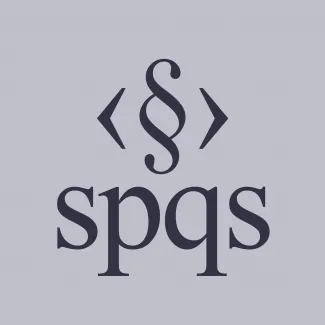Project Migration from .NET to Python: Key Reasons, Business Value, and Viable Alternatives
With the way the digital landscape continues to evolve, companies are reconsidering their tech stacks to remain competitive and scalable. If your project is already on .NET and you find that it's constraining your flexibility, speed, or integration, perhaps it's time to look at a different approach.
To the majority of organizations, Python is a solution for the future that simplifies development complexities, reduces costs, and opens the door to modern tech ecosystems. If you require integrating AI, automating workflows, or just faster development, our Python Development Services can support you in unlocking the benefits of these options in a powerful, multi-purpose stack.
Why Organizations Choose to Move from .NET to Python
1. Cleaner Syntax, Faster Development
Python’s simple, expressive syntax allows developers to write less code while achieving more. Compared to .NET, Python helps reduce overhead and complexity, especially when using developer-friendly frameworks like Flask or Django. This often results in faster delivery cycles and easier debugging.
2. Robust Library Support
From data science and automation to web frameworks, Python boasts a peerless set of libraries. Your development team won't need to reinvent the wheel and can use available, high-quality packages, accelerating development and production timelines.
3. True Cross-Platform Compatibility
Python was designed to be cross-platform from the ground up. It operates under Windows, macOS, and Linux equally effortlessly, generally not needing code modifications. While .NET Core is improving in this area, Python's compatibility remains unmatched in flexibility and ease of deployment.
4. Global Community
One of the largest assets of Python is that it has a massive base of users. This makes it easy to get problems solved, find documentation and tutorials, and bring in new talent, which lowers the learning curve and development risk
5. Versatility Across Domains
Python is a general-purpose programming language applied in web development, data analysis, DevOps, automation, and more. If your company's needs cross multiple domains, Python provides one solution that will grow in line with your ambitions.
6. Modern Integrations
Python also suits the modern platforms and services like cloud providers AWS and GCP, Docker systems, and RESTful APIs. It is also supported in the CI/CD pipelines and can even be deployed as a primary programming language in a microservices architecture.
7. Minimum Infrastructure Needs
Using asynchronous processing and support of light frameworks like FastAPI, it is possible to deploy Python programs efficiently in low-infrastructure setups. This will save you a lot of hosting and operational costs in the future.
8. Scalability and Maintainability
Python's syntax is easy to read, and its cleanliness facilitates maintainability, allowing new developers to onboard more easily and new functionality to be added in the future. Horizontally scale your growing app using microservices or container-based apps.
9. Ideal For Agile and DevOps Processes
Python’s lightweight nature and integration capabilities make it ideal for Agile development environments. It supports rapid iteration, continuous testing, and automated deployment, key pillars of modern software delivery.
10. Preferred Language for Data-Driven Solutions
If your roadmap includes AI, machine learning, or data-intensive features, Python is the industry standard. Its ecosystem—backed by libraries like SciKit-Learn, TensorFlow, and Pandas—makes it easy to prototype and scale intelligent systems.
Thinking of upgrading your tech stack and planning a migration to Python from .NET? Evrone's development team will guide you through every step of the migration, starting from the assessment to the deployment. Contact us to start your Python transformation today.
What You Should Consider Before Migrating
Before migration, you should explore potential constraints:
- Performance problems: Python can lag behind .NET in some CPU-intensive tasks. This can be avoided through the utilization of optimized modules and native extensions.
- Migration Costs: Replicating existing functionality takes time and expense. It is crucial to find out whether the long-term value outweighs the upfront cost.
- Team Transition: If you have a team experienced in .NET, a transition to Python will require either training or hiring Python-experienced developers.
When Should You Migrate to Python?
You should switch if:
- Your roadmap includes AI, automation, or data science.
- Your aim is to accelerate development cycles and reduce technical complexity.
- Your system should be integrated with modern cloud and DevOps infrastructure.
- You want to reduce ongoing operating costs.
Evaluating your technical goals, requirements, and future development is essential to a rational migration decision.





















